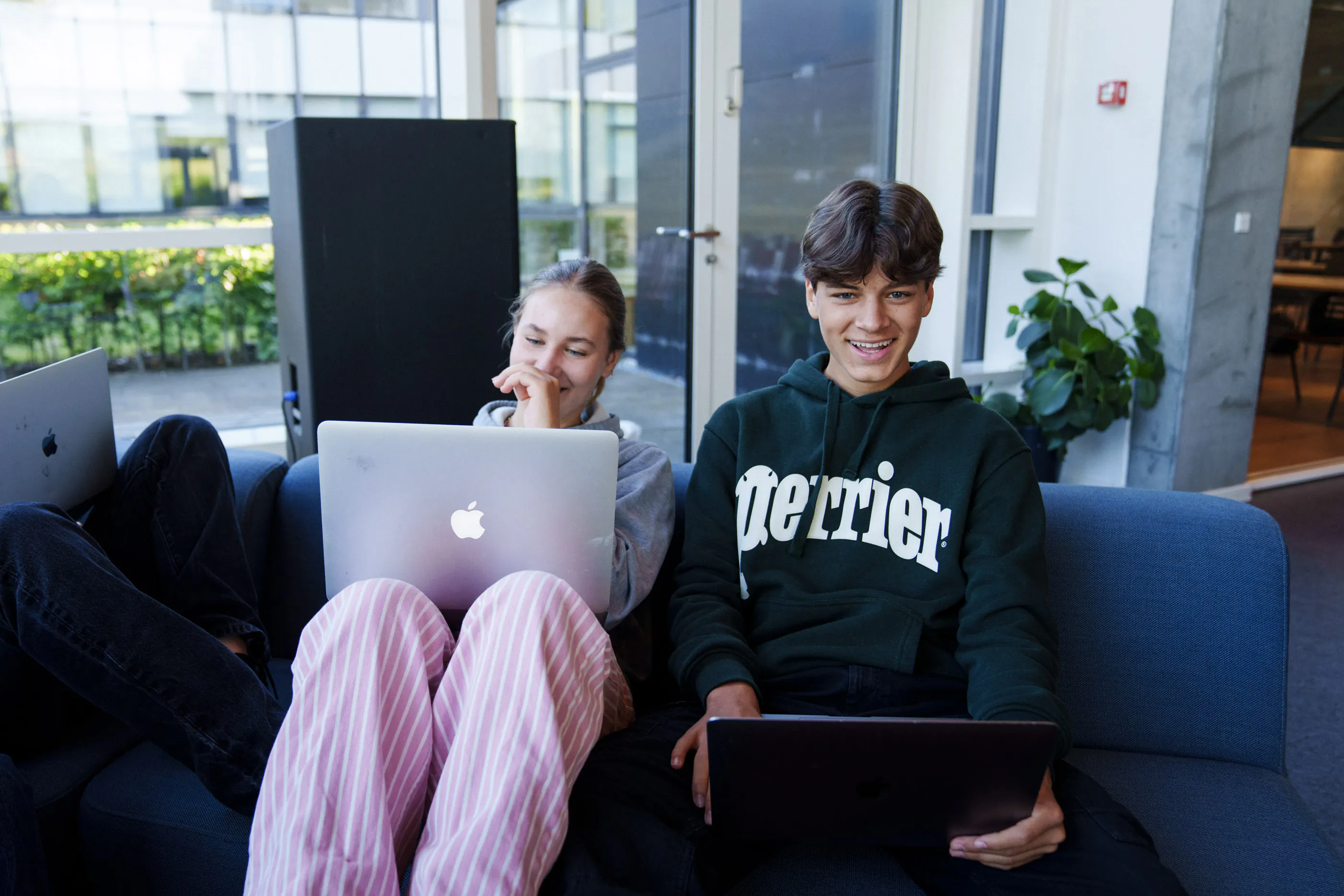
Group 1
Studies of Language & Literature
In the IB Diploma Programme, students must study two languages. At least one of them must be an A language (mother-tongue language, official language, best language), and the other a language from Group 2, a language that you are learning (your second-best language or a new language). If you study two A languages, you do not have to choose a language in Group 2 (Language B – Language Acquisition).
Danish A Literature is focused on literature only. IBO only offers this option. Danish A is taught at both High Level and Standard level.
For English A, there are two different courses to choose from: 1) English A Literature, and 2) English A Language and Literature. Both English A courses are taught at both High Level and Standard level.
If neither Danish nor English is the student’s mother tongue or official language, we offer a Literature A Self-taught course (SSST: school-supported self-taught, only offered at Standard Level). If you study an A language as Self-taught, you will have lessons every other week with the self-taught coordinator and you will have a tutor. The Self-taught Coordinator will guide and support you throughout the two years.

The aims of the language courses are to
Students will develop these skills through class teaching, presentations, group work and independent work in their individual Learner portfolios
Introduction
Introduce students to a range of texts from different periods, styles and genres.
Analysis
Develop in students the ability to engage in close, detailed analysis of individual texts and make relevant connections.
Powers of expression
Develop the students’ powers of expression, both in oral and written communication.
Importance of the contexts
Encourage students to recognize the importance of the contexts in which texts are written and received.
Encourage perspectives
Encourage, through the study of texts, an appreciation of the different perspectives of people from other cultures, and how these perspectives construct meaning.
Formal and stylistic aspects of texts
Encourage students to appreciate the formal, stylistic and aesthetic qualities of texts.
Language and literature
Promote in students an enjoyment of, and lifelong interest in, language and literature.
Specifics on Danish, English and Self-taught A Literature:
In addition to the general Group 1 aims listed above, the specific aims of the Literature course at HL and SL are to:
- Develop in students an understanding of the techniques involved in literary criticism.
- Develop the student's ability to form independent literary judgments and to support those ideas.
The A Literature courses are built on the notion of conceptual learning and a focus on global issues. This means that the course is organized around concepts, or big ideas, which makes it easier to form connections between literary works and the context. The central concepts are culture, communication, transformation, perspective, creativity, representation and identity. When reading and studying a literary work, students should explore how it relate to these concepts.
On completion of the course, HL students will have read ten works, and SL/SSST students will have read seven works. The responsible teachers will choose the works studied. Whenever possible, students will also have a say in these choices.
Specifics on English A Language & Literature
In addition to the general Group 1 aims listed above, the specific aims of the Language and Literature course at SL and at HL are to:
- Develop in students an understanding of how language, culture and context determine the ways in which meaning is constructed in texts.
- Encourage students to think critically about the different interactions between text, audience and purpose.
In this course, students will study a wide range of literary and non-literary texts in a variety of media. By examining communicative acts across literary form and textual type alongside appropriate secondary readings, students will investigate the nature of language itself and the ways in which it shapes and is influenced by identity and culture. Approaches to study in the course are meant to be wide-ranging and can include literary theory, sociolinguistics, media studies and critical discourse analysis among others.
On completion of the Language and Literature course, HL students will have read six literary works and various selections of non-literary texts, called bodies of work. SL students will have read four literary works as well as several bodies of work.
Grades
The final grade given for the A Literature course and the Language & Literature course has several components:
Higher Level:
The Individual Oral (IB1) - Internal Assessment
HL Essay (IB2) - External Assessment
Paper 1 and Paper 2 - Taken at the final exams in May – Externally assessed
Standard Level & Self-taught:
The Individual Oral (IB1) - Internal Assessment
Paper 1 and paper 2 - Taken at the final exams in May - Externally assessed